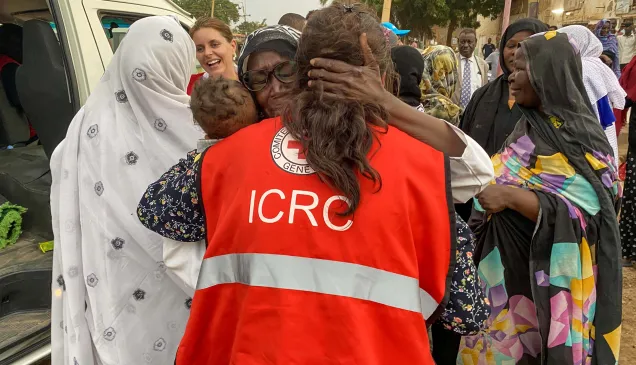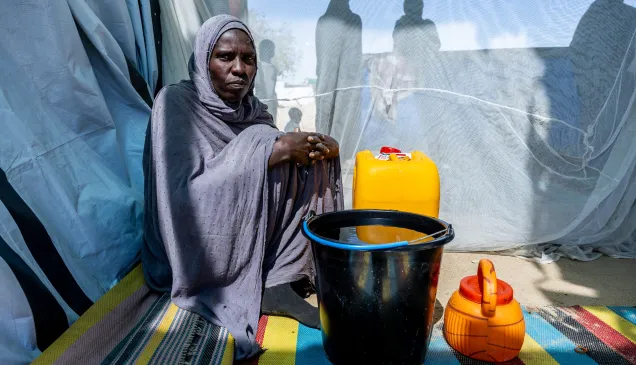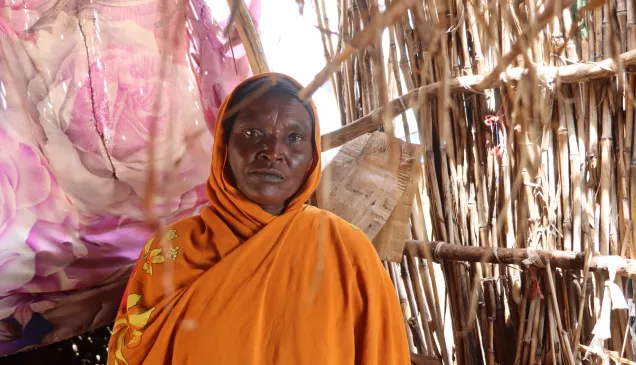“We arrived from Sudan with nothing but our lives”
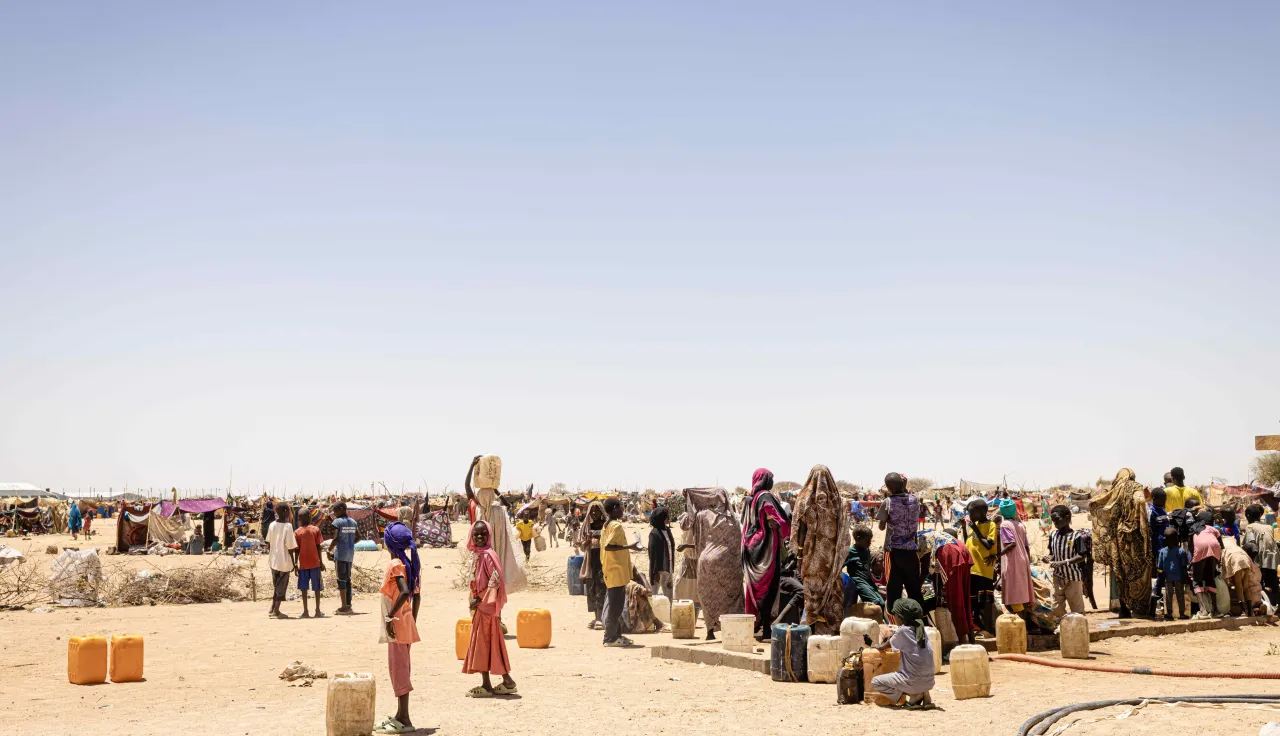
Photo: Alyona Synenko
As a scorching hot African sun rises high in the sky and the temperature soars above 40 degrees celsius, Ardjoune Oumda Yahya and her eight children sit, exhausted, on the dusty ground beneath a makeshift tent, and wait.
They have arrived in Tiné, a remote border town in eastern Chad, with thousands of other Sudanese refugees - many with nothing more than the clothes on their backs - fleeing fresh waves of violence in Sudan’s Darfur region. Most are women and children. All are in urgent need.
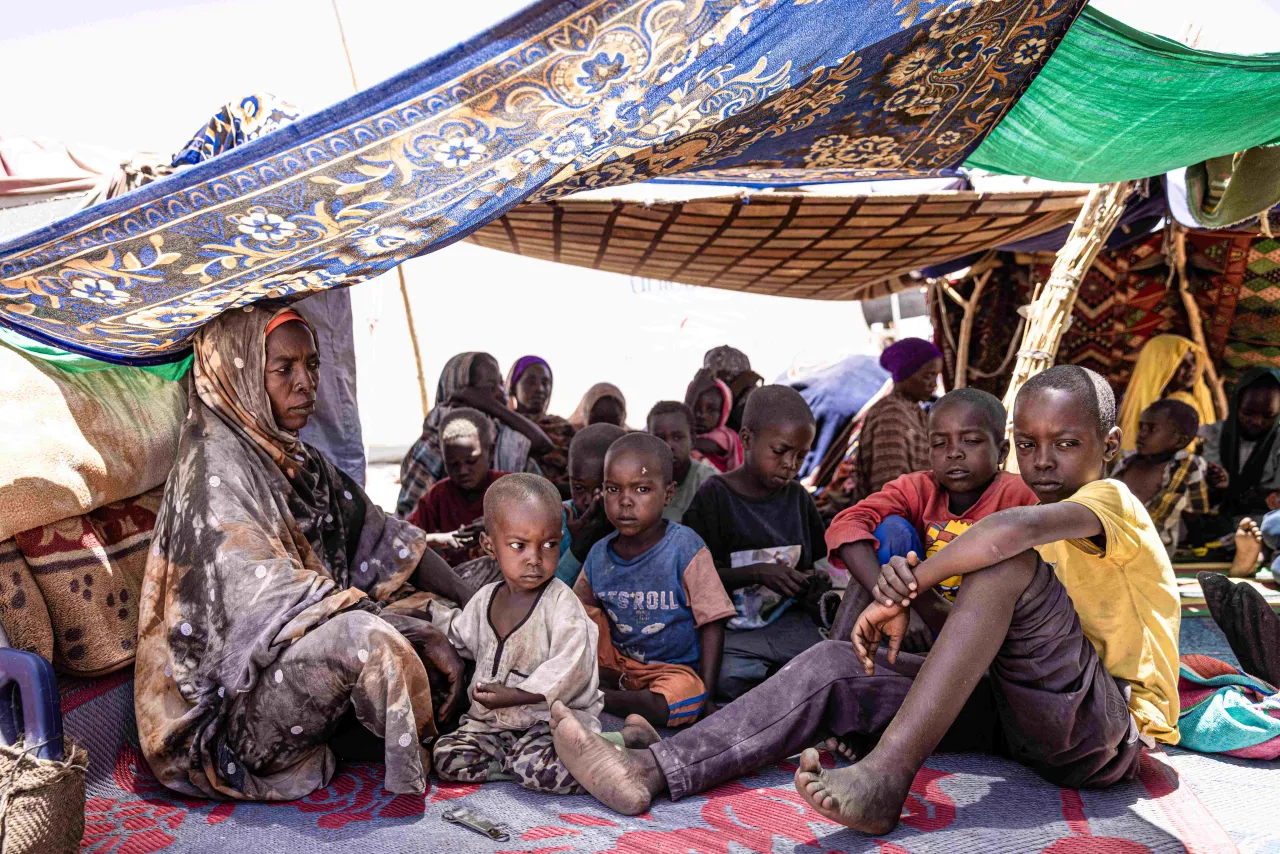
Photo: Alyona Synenko
Photo: Alyona Synenko
Ardjoune, already displaced in her home country, has come here from Zamzam camp, 15 kilometers south of Al-Fashir, in North Darfur. She describes the ordeal that brought her here, and the journey that no mother and her children should ever have to make. “On the road we were thirsty, we suffered,” she says. The journey from Darfur took nearly two weeks - days of walking, hunger, fear, and uncertainty. “This morning, we found a little sugar and we had tea. And since then, we have been sitting in the sun. We haven’t eaten anything yet. I made this cover together with my children. It is hot, but we don’t have anywhere else to go.”
Fleeing crisis
Zamzam and Tawila, the camps she and so many others have fled, were already marked by overcrowding and shortages. Now, the escalation in fighting and violence has driven entire communities out, adding another layer of desperation to an already dire humanitarian crisis.
In Tiné, with limited resources and few options, families are forced to sleep in the open or huddle under makeshift shelters of fabric and branches. Humanitarian organizations, including the International Committee of the Red Cross (ICRC) and the Red Cross Society of Chad, are rushing to respond - but the scale of need is overwhelming, and funding is falling short.
“This is the only water point here, and, according to the available statistics, there are more than 8,000 people at this site,” said Allaramadji Dounia, an ICRC water engineer working at the transit camp. “One or two weeks from now, this number could double or triple.”
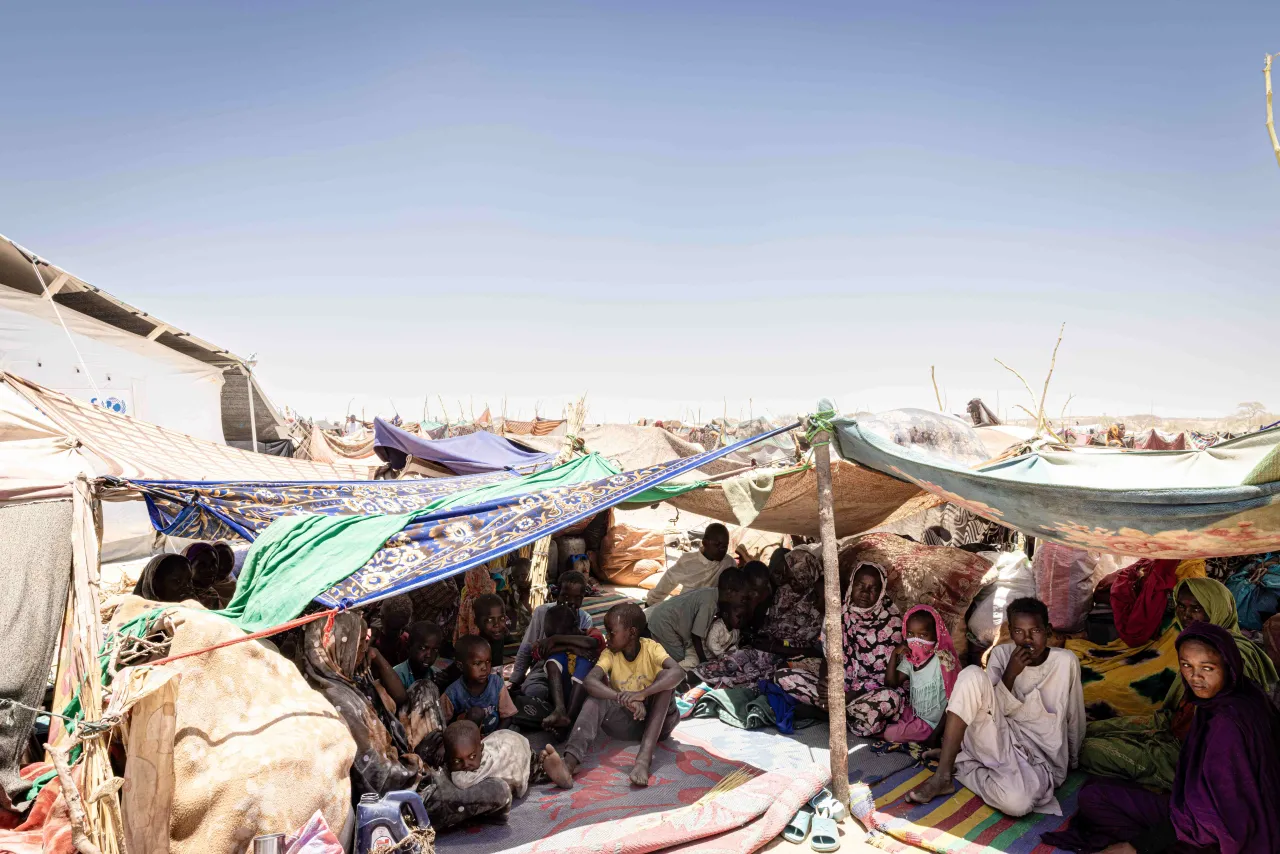
Photo: Alyona Synenko
Photo: Alyona Synenko
Families shattered and searching
The people arriving in Tiné carry more than physical exhaustion - they are deeply traumatized. Many report having witnessed or survived violence, including sexual violence, during their flight. Families have been torn apart, with loved ones missing, separated by chaos, or left behind in Sudan.

Photo: Alyona Synenko
Photo: Alyona Synenko
“Some of the children were left behind, and they haven’t arrived yet,” said Khadija Adam Youssouf, a refugee who managed to reach the site safely. “The war separated us. We don’t even know where they are. Sudan… We cannot return to Sudan. We will stay here, and our children will go to school.”
A scaled-up humanitarian response in the face of dire need
In response to the urgent need of this rapidly-growing community, the ICRC and the Red Cross Society of Chad are providing urgent assistance. This includes access to clean water and emergency shelter, psychosocial support, and restoring family links services - offering free phone calls and internet connections to help people find and speak to loved ones who may be missing or still on the road.
These efforts offer a lifeline, but the needs continue to grow by the hour. The humanitarian response must somehow keep pace with the human tragedy unfolding on this dusty borderland. The people here have escaped the war. Now they need help to survive.

